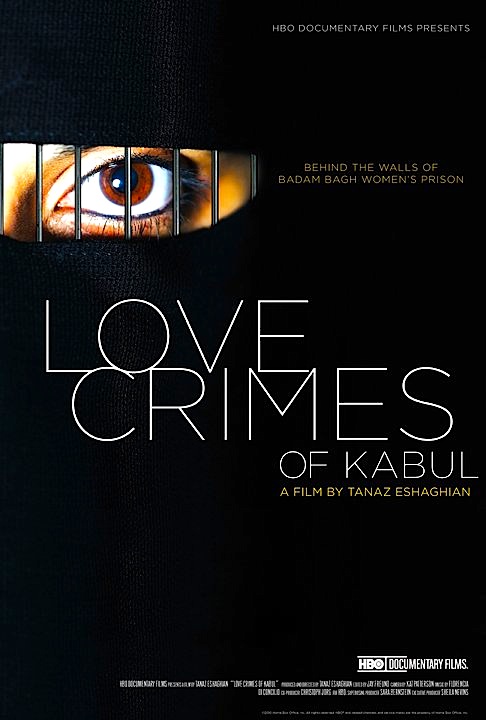 By Joe Bendel. Witness Islamic Sharia Law in practice. It is impossible to consider it anything less than institutionalized misogyny after observing the prosecution of “moral crimes” in Afghanistan. With remarkable frankness, Iranian-American filmmaker Tanaz Eshaghian takes viewers inside the Badam Bagh women’s prison, where half the inmates are incarcerated on dubious morals charges in Love Crimes of Kabul, one of the laudable selections of the 2011 Human Rights Watch Film Festival that actually addresses human rights abuses.
By Joe Bendel. Witness Islamic Sharia Law in practice. It is impossible to consider it anything less than institutionalized misogyny after observing the prosecution of “moral crimes” in Afghanistan. With remarkable frankness, Iranian-American filmmaker Tanaz Eshaghian takes viewers inside the Badam Bagh women’s prison, where half the inmates are incarcerated on dubious morals charges in Love Crimes of Kabul, one of the laudable selections of the 2011 Human Rights Watch Film Festival that actually addresses human rights abuses.
All three of Kabul’s primary POV figures are bright and attractive young women. All three stand accused of the heinous crime of premarital sex, but only one of them actually engaged in what would be perfectly legal behavior in a rational society. Not to be spoilery, but care to guess which one gets the most lenient sentence? Indeed, it quickly becomes apparent that justice has no place whatsoever in Islamic Law.
Easily the most shocking case is that of seventeen year old Sabereh, who simply had the misfortune to be caught eating a meal alone with a boy. Suspiciously, when a medical examination confirms her virginity, the prosecution switches gears, charging her with sodomy – the equivalent of going nuclear. Of course, Eshaghian’s cameras were banned from Sabereh’s trial, lest the railroading be exposed to sunlight, but the fix was obviously in.
At first, Kabul makes the audience’s blood boil, but as the full implications of the injustices perpetrated in Badam Bagh become clear, viewers’ stomachs will turn to ice. Eschewing talking heads and voiceovers, Eshaghian captures a visceral sense of life for the accused. She also records some brutally honest conversations as the women struggle with their Kafkaesque situations. Despite the relatively short running time, Eshaghian patiently lets scenes play out so viewers can appreciate their full import. Though her overall access is quite impressive, when her cameras are banned (as during Sabereh’s “trial”), the significance is similarly inescapable.
While Eshaghian’s unfiltered approach is undeniably bold and bracing, she leaves one rather obvious question largely unexplored. In fact, one of the most striking aspects of Kabul is the considerable presence of toddlers in Badam Bagh, who were either delivered while their mothers were serving their time or were essentially abandoned by their fathers. Strangely though, Kabul never tackles the issue of these true innocents growing up behind bars.
The injustices (ostensibly post-Taliban) faced by the women of Badam Bagh in general and young Sabereh in particular demand official American intervention. No doubt our current administration will get right on that, sometime after the U.S. Open. A shocking indictment, Kabul is a worthy companion film to The Green Wave, both of which are highly recommended at this HRWFF. It screens today (6/22) at the Walter Reade Theater. Part of HBO’s Documentary Films Summer Series, Kabul also airs on several of the network’s arms through July 27th.
Posted on June 22nd. 2011 at 1:13pm.
I really can’t think of a more important film than this. Supported by political correctness in the West and its own oppression in the Middle East, Islam has built the most formidable power in the world.
Consequently, nothing speaks truth to power more than exposing Islam. Not only do you risk being called a bigot, but you face physical harm and even death — ask Theo van Gogh.